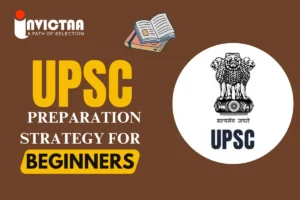Most Important Topics in UPSC: Union Commissioning civil services is the constraint and the most prestigious Indian career. With education, many students work each year through the exam preparations. In essence, every candidate faces the challenge of preparing for a multifaceted syllabus comprising diverse subject matter and several critical areas within the syllabus. This section examines the most essential topics in UPSC and how they can be addressed efficiently.
Why Understanding the Most Important Topics in UPSC Important
The structure of the UPSC exam resembles the following stages:
- Preliminary Examination: This consists of objective-type questions mainly related to general studies.
- Main Examination: Politician contains Objective-type papers that require a deep understanding of various subjects.
- Personality Test/Interview: Evaluates a candidate’s personality, understanding, and reasoning abilities.
To pass the UPSC exam, it is enough to study the Most Important Topics reasonably. Understanding the needs of these areas allows the candidates to economize their time and energy for the best results.
Subject-Wise Most Important Topics in UPSC
The following section outlines the essential topics and the Most Important Topics in UPSC, covering the syllabus and thus helping you focus on the essential aspects.
1. History
History should be considered crucial when preparing for Prelims and Mains. It is always said that the Most Important Topics in UPSC relate to significant events, movements, and people in India’s history.
- Ancient: The Indus Valley Civilization, Vedic culture, and important kingdoms such as the Mauryas and Guptas are first in the sequence of significant sights.
- Medieval: The interrelationship between the Delhi Sultanate and the Mughal Empire and the periods of Bhakti and Sufism.
- Modern: The main aspect that catches the attention is the fight for sovereign India and the heroes of that fight, as well as the crucial aspects that colonial rule brought to bear on Indian society, economy, etc.
- Art & Culture: Most Important Topics in UPSC preparation should also include Indian great monuments, dance forms, music forms, versatile visual arts as well as performing arts.
2. Geography
Veterinarian science is a subject mentioned in the syllabus of most IAS students, particularly because of its ecological importance in India and around the world.
- Physical geography involves landforms, climates, ocean currents, and ecological zones, among others.
- Emphasis on landforms, various climatic regions, soil characteristics, and farming conditions with reference to India.
- Continents, people, and other Earth’s geographical features are the primary concerns in World Geography.
3. Polity and Governance
All papers regarding the Indian administration are essentially derived from politics, and mere Indian data pertaining to managed governance and geopolitics, such as Paper II, which is devoted solely to the Constitution and other Most Important Topics in UPSC, can undoubtedly be classified as Indian data.
- Constitution of India: Foundational norms, duties, several articles, and preamble.
- Governance: Comprehend Parliament, President, Judiciary, and other significant posts.
- Federal Structure: Relations between center and states, separation of authority, and essential amendments.
- Current Affairs in Governance: Important government schemes, policies, as well as up-to-date issues related to changes in the Constitution of India, are important topics for UPSC.
4. Economics
Its structure is dynamic and static, making it one of the Most Important Topics in UPSC. Owing to its importance, it focuses on contemporary economic conditions and policies and covers an extensive area.
- Basic Economic Concepts: Inflation, Gross domestic product, fiscal and monetary policies, and national income.
- Indian Economy: Economic reforms post 1991 including poverty and employment, and recent economic survey reports.
- Agricultural Economics: Minimum support price, food security, and rubrics of agrarian policies.
- Budget and Financial Inclusion: The Union Budget, economic planning, and policies such as Jan Dhan Yojana are at the core of UPSC’s economics.
5. Environment and Ecology
Environmental issues have worsened and are, therefore, among the Most Important Topics in UPSC for Prelims and GS Paper III.
- Eco Principles: Get knowledge on biomes, species diversity, and environmental diversification.
- Environment Legislation: Designed and preserved Areas, including biosphere reserves, wildlife parks, and the Wildlife Act.
- Global Warming: Effects, reasons, global accords such as the Paris Accord or Framework and domestic strategies.
- Disaster Management: This is relevant, especially in GS Paper III, where more emphasis is placed on natural disasters. risks and various case studies.
6. Science and Technology
The science and Technology area is vast, with many issues concerning new technology and its significance. UPSC regards it as one of the Most Important Topics since it has a broad range of cross-cutting issues.
- Biotechnology: Including genetic engineering, the recent vaccines, and other notable health campaigns.
- Space and Defense: Significant ISRO endeavors, technology in defense, and recent advancements.
- IT and Cybersecurity: India’s approach to digitalization and e-governance, and the drafting of laws on cyber security.
- Current Advances: Notable scientific advances, government-funded tech programs, and their uses.
7. Current Affairs
Every stage of the UPSC examination starts with Current Affairs, making them one of the Most Important Topics. Achieving success in UPSC also requires knowledge of current politics and economic and international political developments.
- National politics: actions and policies that the given government undertakes within its borders, including concerning the population’s living standards.
- International politics: Treaties, organizations between governments and firms, and international relations.
- Economic relations: the most recent events in finance around the world, how countries conduct trade with one another, and the countries that they trade within the economy.
- Social aspects: women’s liberation, school rebuilding issues, diseases, and poverty alleviation.
Tips for Preparations in Most Important Topics in UPSC
- NCERTs for Foundation: The NCERT textbooks lay a strong foundation for all topics in the Most Important Topics in UPSC.
- Keep Yourself updated with Current Affairs: For more factual know-how, rely on credible newspapers.
- Practice and Revision: Make it a habit to answer critical points regularly backed up with mock tests.
- Answer Writing: For Mains, writing back answers makes one work on articulation and precise writing.
- Time Management: Focus on the Most Important Topics in UPSC but do not lose balance across subjects.
Also read: UPSC CDS 1 Final Result 2024
Most Important Topics in UPSC FAQs
Q1. How can I cover my current affairs for UPSC?
Ans: To cover current affairs, UPSC candidates should read newspaper headlines and download Invicta Plus for the latest news.
Q2. What are the most important topics for UPSC?
Ans The Important subjects are History, Geography, Politics, Economics, Science and technology, and Current Affairs.
Q3. Which topics are important in Economics?
Ans Focus on topics like inflation, policies, the Indian economy, agriculture, and the Union Budget.





